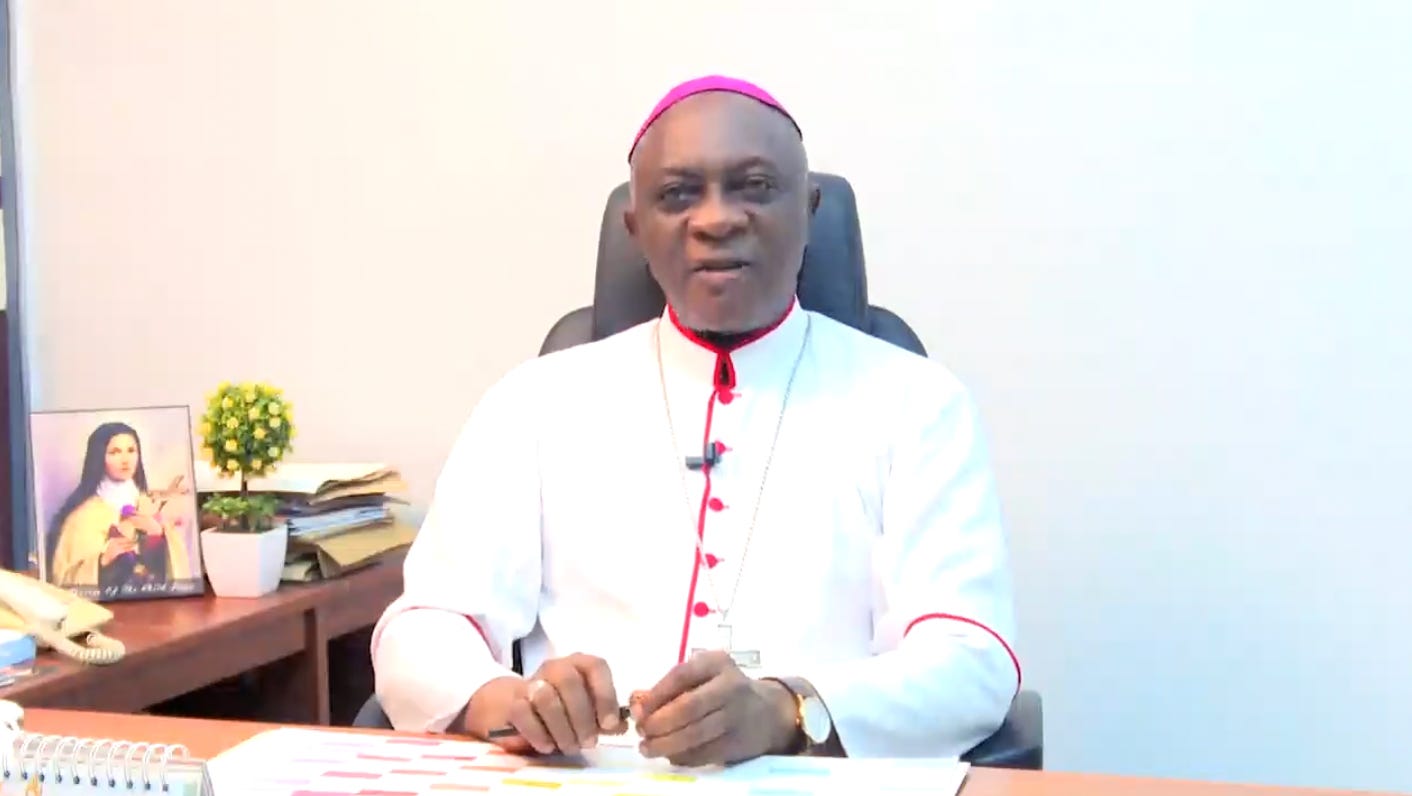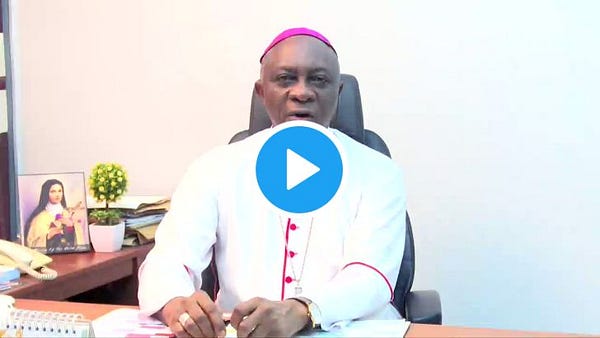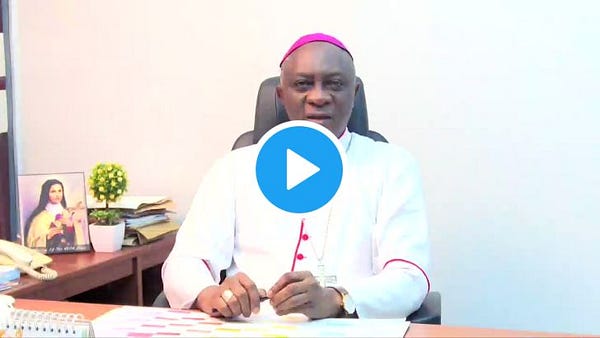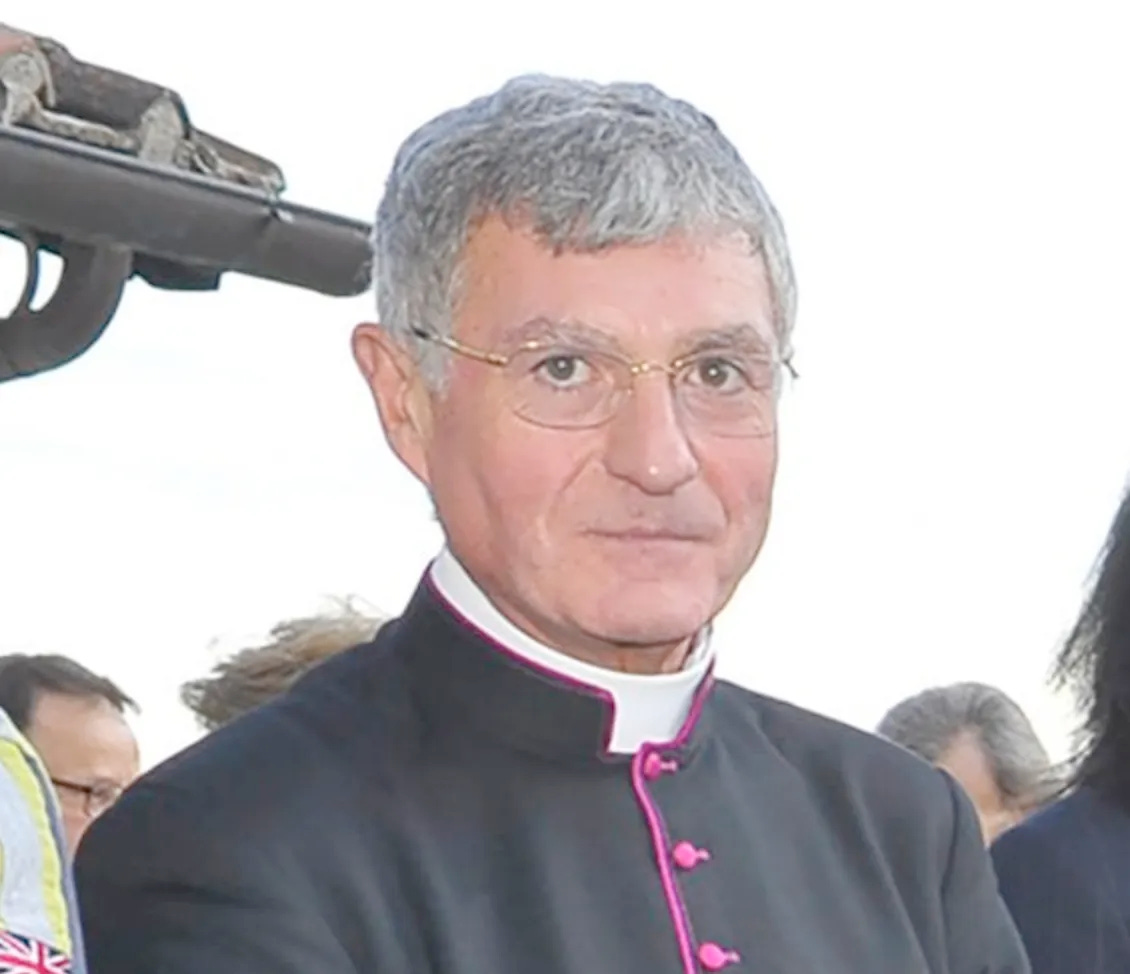The Archbishop of Lagos called Nigerian Catholics on Saturday to love those who hate them amid escalating religious and ethnic violence in the country, a burgeoning secessionist movement, and ongoing kidnappings by terrorist groups.
The archbishop also called the country’s government to ensure equity and justice for Nigerians.
The full text of Archbishop Alfred Martins’ message to Nigerian Catholics is below.
Archbishop Martins:
St Paul says the proof that God loved us first is that he died for us while we were still sinners, unworthy of his love. — Romans 25:8
We are therefore called to love in this way, love the most unworthy ones because that is how we have been loved by God.
Dear brothers and sisters, it is natural that we love only our friends, and those who love us. And so it is extremely difficult for us to love those who hate us so much as to want to harm us and do evil against us.
This is the sort of scenario that we are experiencing in our country today.
That so much mutual suspicion, ethnic and religious, and sadly it is gradually degenerating into hatred and loathing of one another. This is made worse by the perception that government — that has the responsibility of ensuring equity and justice, the two values that assure peace and mutual love — is perceived as not doing its duty, or even worse, as promoting the activities that lead to mutual suspicion.
It takes supernatural grace to love those who hate us.
That grace can be helped if government, led by the president of the Federal Republic, the National Assembly, and the governors of the states, do their duties, and restore confidence in people that they mean well, in equal measure, for all the peoples…
Government must help us to live the values of our faith by building confidence that comes from justice and equity in their actions and decisions. And so as we go about our tasks today, may the Lord help us to love wholeheartedly, and without any boundaries, through Jesus Christ, Our Lord.
The background
Archbishop Martin’s speech came days after the Catholic bishops’ conference of Nigeria warned that the Nigerian nation is “on the verge of collapse.”
“Our country Nigeria has gone through many crises, and so far, has managed to survive them, by God’s grace. But the ongoing crisis in the country should be of grave concern to everyone who still believes in “one united nation under God”. We are really on the brink of a looming collapse, from which we must do all we can to pull back before the worst overcomes the nation. This is not merely crying wolf without cause,” the bishops said in a Feb. 23 statement.
“The very survival of the nation is at stake. The nation is falling apart,” the bishops warned.
The statement came the same week as killing intensified across the country, committed by the Boko Haram terrorist network and others, and after 42 people — who have since been released — were kidnapped from a school in northwestern Nigeria. Among those kidnapped were 27 students; at least one student died during the kidnapping.
The Catholic Church in recent years has seen seminarians kidnapped, at least one killed, along with the kidnapping and murder of priests and religious. In December, a Nigerian bishop was kidnapped, and eventually released.
The bishops have urged President Muhammadu Buhari to gain control over the country; Buhari’s critics say he has failed to crack down on Islamist militant groups and on criminal gangs that effectively control some parts of the country. They also suggest electoral irregularities and intimidation in Buhari’s successful 2019 reelection bid.
Muslims, who live primarily in the country’s north, comprise a slight majority in the country; Christians, who make up 45% of the population, live most in the nation’s south and west.
There are 20 million Catholics in the country, less than 15% of the entire Nigerian population.
A long-simmering Igbo secessionist movement in southeastern Nigeria has gained traction on social media in recent months. Religious and ethnic tensions in the country have been exacerbated by Islamist terrorist cells, violence by Muslim Fulani herdsmen against Christian farming communities, and a widespread perception in some parts of Nigeria that the federal government is corrupt, and tolerant of criminal activity.
Boko Haram and Fulani violence has killed more than 12,000 Christians and destroyed about 2,000 churches in the country, according to religious liberty advocates. The violence has displaced more than four million Christians, many of whom leave family regions for Nigeria’s cities, or aim to leave the country.
The bishops, for their part, said this week that “the clamour for self-defense is fast gaining ground. Many ethnic champions are loudly beating the drums of war, calling not only for greater autonomy but even for outright opting out of a nation in which they have lost all trust and sense of belonging. The calls for secession on an ethnic basis from many quarters should not be ignored or taken lightly.”
“Many have given up on the viability and even on the desirability of the Nigeria project as one united country. No wonder many non-state actors are filling the vacuum created by a palpable failure of government.”
“The Federal Government under President Muhammadu Buhari can no longer delay rising to its obligation to govern the nation; not according to ethnic and religious biases but along the lines of objective and positive principles of fairness, equity and, above all, justice. It is not too much for Nigerians to demand from Mr. President sincerity both in the public and private domain.”
“There are no more excuses.”






